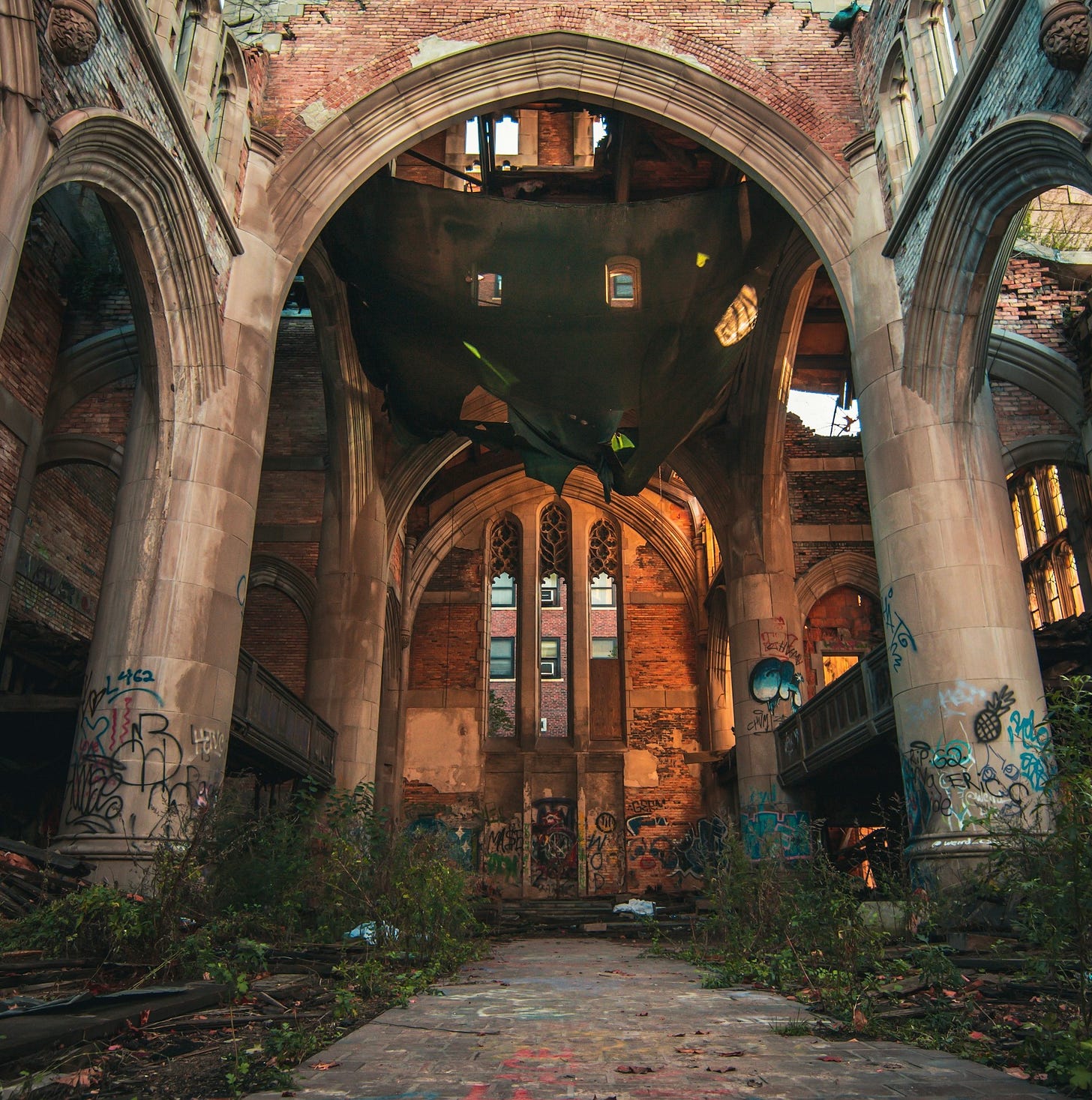Institutions: can’t live with ‘em, can’t live without ‘em.
Beautiful, terrible community: Part 2 (with help from Nick Cave, Philip Larkin and the New York Times).

Longing for community is like searching for love. It can be a bumpy road, and even when you think you’ve found it, everything can fall apart. Sometimes catastrophically, scattering shrapnel, sometimes with a slow grey sadness. Despite all this, many of us keep searching. The desire is a stubborn one, inbuilt-even, despite the risk/reward ratio.
I’m just back from a trip to deliver a keynote for four thousand Mormons in Salt Lake City. It was an adventure for lots of reasons, not least that the stage was bigger than our house and the audience three times the size of the largest I’d ever spoken to.
I had, like most of us when entering tribes very different from my own, come with questions and preconceptions, things I wanted to understand about the world of a Latter Day Saint. In practice, as almost always happens when speaking to real people, the quest for facts and information went out the window. Far more interesting were the humans in front of me.
Those I met over lunch were kind and smart and loved poetry. The women were intimidatingly well groomed (false eyelashes as standard) but in America I always feel like a scruffy Brit. The funny thing about being radically honest on stage is that it gives people permission to be honest too, and so many of them shared the tensions they were wrestling with. There were quite a lot of hugs and tears. Their faith gave them a deep sense of meaning, connection with the divine and a close community who genuinely cared for each other. They also faced intellectual questions, historic scandals coming to light, and unease with traditional gender roles1. They knew they had the option to practice their faith privately, secede from LDS institutions. They sensed the cost that would come with that decision, knew they would likely end up lonelier, but some just didn’t know if they could stay.
You may recognise this story. On the way home I spoke in Savannah, at a church which seems to be partly acting as a haven for people hurt by other churches. Up and down America, congregations are being torn down the middle by politics, conversations on race and sexuality, abuse scandals, moral failures. Synagogues are trying to navigate conversations around Gaza. Brits are no stranger to these dynamics either. If you have some experience of institutions where people find belonging, I am sure you carry your own disappointments. I know I do.
An institutional leader I respect deeply said privately recently: “institutions are obscuring the flow of life”.
I am also hearing another story. It is unusual for me to spend so much time talking to “religious” people. More of the time, I’m the sole “out” person of faith (Pof?) in (so-called) secular settings. Through my coaching and consultancy work I listen in to conversations in social change, systems thinking and the wider third sector, particularly around social cohesion, peace building and the climate emergency. Most of the people I engage with are not part of “organised” religion, have long since shrugged off such superstitions. There, the absence of shared institutions, stable community infrastructure, and even (whisper it) worshipping congregations is being increasingly recognised as a driver of many of the world’s most wicked problems. As the ever thought-provoking social theorist
Stein Lubrano argues in Robert Putnam Doesn’t Know What To Do, when the world’s foremost political scientist’s proposed solution to the shredding of our social fabric is “join a knitting club”, you know ideas are thin on the ground.Institutions are the main way we find community. Where did you meet the people you love? School? University? Work? A club, society or congregation? Your family? Institutions all. Even early social media gave people a reason to be in the same “space” for extended periods of time and form bonds. It turns out we need this scaffolding, these containers for sustained contact in order to really connect. The linking of loneliness with declining membership of and presence in institutions makes sense.
Keep reading with a 7-day free trial
Subscribe to Fully Alive by Elizabeth Oldfield to keep reading this post and get 7 days of free access to the full post archives.





